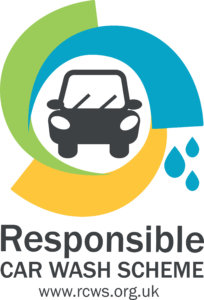The Government has rejected calls for a car wash trial licensing scheme for hand car wash gangs to ensure they comply with environmental and labour exploitation laws.
The House of Commons environmental audit committee has today (1 February) published the Government’s response to a report it published in November, which called for hand car washes to be licensed to prevent “modern slavery in plain sight on Britain’s streets”.
The report specifically called on ministers to consider trialling a licensing scheme for hand car washes that brings together all of the major compliance requirements, including on environmental pollution, into a single, more easily enforceable, legal requirement.
But in its response, the Government states a “voluntary pilot approach” which brings together all the partners involved would be preferable to a compulsory scheme.
It highlights the work done by the Gangmasters and Labour Abuse Authority (GLAA), the Environment Agency and the Health and Safety Executive to support the Responsible Car Wash Scheme (RCWS), which was launched in October.
 The scheme will initially be run in the Midlands and once a member, car wash operators will be able to display a Responsible Car Wash Operator logo which will enable consumers to make a clear choice between a fully compliant operator, that has been through the accreditation process and verified by audits and spot-checks, to one that may not be.
The scheme will initially be run in the Midlands and once a member, car wash operators will be able to display a Responsible Car Wash Operator logo which will enable consumers to make a clear choice between a fully compliant operator, that has been through the accreditation process and verified by audits and spot-checks, to one that may not be.
“The enforcement bodies worked closely with stakeholders in the petrol retail industry to develop this accredited scheme, which is underpinned by a code of practice designed to identify compliant hand car washes,” the response states.
“The code provides a holistic set of standards covering existing environmental health and safety regulatory and other labour market offences.”
Pollution guidelines
But the response also reveals that the Environment Agency has agreed to write to major supermarkets this year to advise them of their responsibilities as landlords to ensure car washes follow pollution guidelines.
“We are pleased the Government has accepted two of our recommendations, by asking the Environment Agency to write to supermarkets and promising to update the pollution prevention guidance,” said Committee Chair, Mary Creagh.
“There is more to do on tackling labour exploitation. This should have been addressed by adopting our recommendation of a trial licensing scheme. It is disappointing that ministers have opted for a pilot approach that is voluntary,” she added.
“With so few minimum wage prosecutions despite the exploitation of workers being commonplace, the Government must send a strong message to car wash operators that such practices are illegal and that it will not turn a blind eye.”
Commenting on the Government’s response, the Managing Director of the RCWS, Teresa Sayers, said there is a need to recognise that car washes are found in a variety of locations including petrol forecourts, garden and leisure centres, as well as disused pieces of land. “Supermarkets are taking a proactive lead in tackling issues found across the industry through the Responsible Car Wash Scheme,” said Ms Sayers.
“There are many other land owners and operators, not connected to supermarkets, that must also be reminded of the need to follow environmental legislation as well as ensuring their workers are properly treated and they abide by all UK regulations.
“Tesco, Sainsbury’s, Morrisons, Asda and Waitrose, are all founding members of the RCWS which is committed to developing a fully compliant industry, enabling operators to complete commercially on equal terms. RCWS is working with the GLAA, the Police, HSE and the EA to imbed the code of practice within the industry, with the scheme being rolled out in the Midlands in February and with national rollout from April. RCWS accreditation will enable operators to demonstrate to consumers that they abide by a code of practice that not only tackles the need to protect the environment (including operators having the appropriate trade effluence licensing at the site) but also ensures that they trade legally, look after their workers and care for their customers.”
The Safety Conversation Podcast: Listen now!
The Safety Conversation with SHP (previously the Safety and Health Podcast) aims to bring you the latest news, insights and legislation updates in the form of interviews, discussions and panel debates from leading figures within the profession.
Find us on Apple Podcasts, Spotify and Google Podcasts, subscribe and join the conversation today!

 The scheme will initially be run in the Midlands and once a member, car wash operators will be able to display a Responsible Car Wash Operator logo which will enable consumers to make a clear choice between a fully compliant operator, that has been through the accreditation process and verified by audits and spot-checks, to one that may not be.
The scheme will initially be run in the Midlands and once a member, car wash operators will be able to display a Responsible Car Wash Operator logo which will enable consumers to make a clear choice between a fully compliant operator, that has been through the accreditation process and verified by audits and spot-checks, to one that may not be.